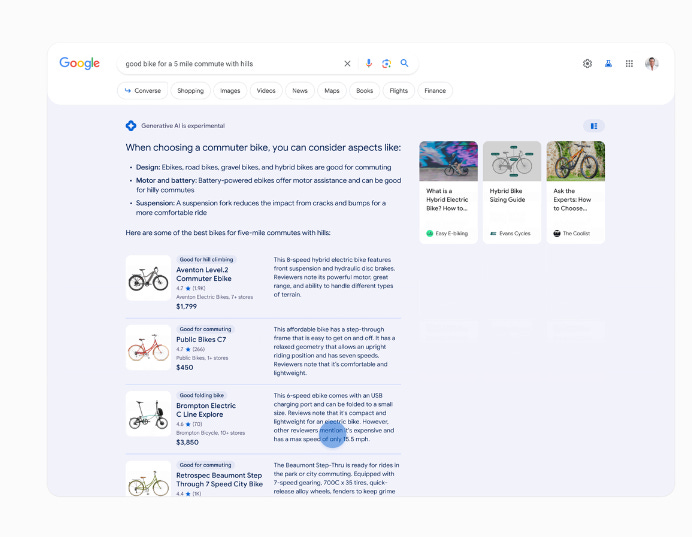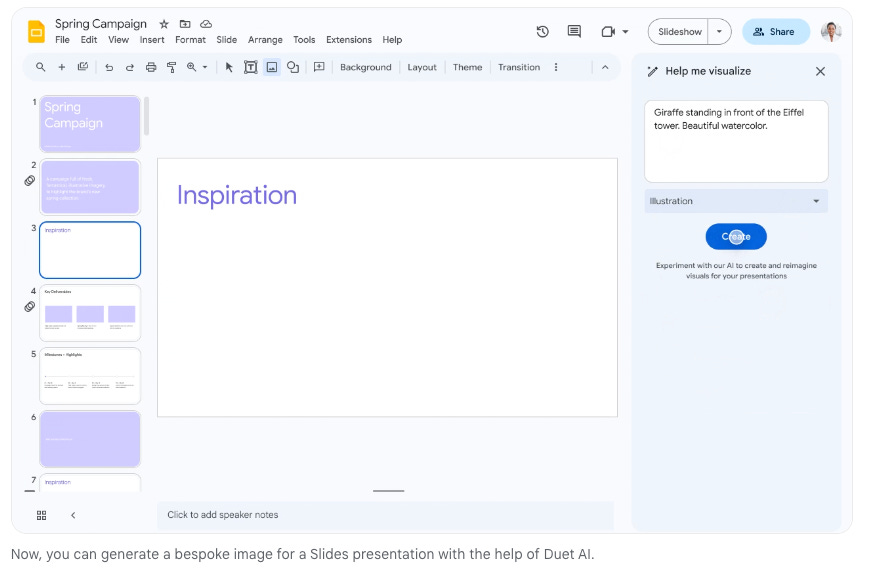Google goes all in on Generative AI
Such a huge week of AI announcements, I can’t possibly cover them all so I wanted to focus on some takeaways from Google announcements.
This tweet sums it up (sorry Substack doesn’t render these anymore ):
https://twitter.com/mattturck/status/1656399741893111810?s=20
There’s plenty of great news coverage and recaps, so i’ll just share a few links and add commentary:
The short of it is that Google is introducing AI driven features and products across consumer, workplace and developer tools.
What it means - Consumers (Search):
Generative AI in search is one of the areas I’m most conflicted as the whole search (maybe 98%) experience is directed right now at navigating the internet instead of providing direct answers. That being said, the examples Google showed on using Generative AI to educate alongside web browsing could be really useful:
This example shows how it can summarize both features and reviews from multiple sources to give an overview. The .gif version on Googles website shows a bit more of the full experiences. Organizing information to help guide the user to pick a better search result seems more useful than just providing a direct answer.
What it means - Consumers (Workspace):
Google announced integration of AI assistance across the Workspace suite. With both Microsoft and Google all in on workspace augmentation with AI, it’s clear that AI assisted creation in business will be the norm and not the exception. I think it will happen within a year if not sooner.
What it means - Developers:
Probably the most excited (to me) announcements were the details and commitment on developer tools. Google announced across the board developer offerings led by Palm 2 - their competitor to GPT4.
There isn’t really a complete performance comparison of GPT4 vs Palm 2 but their research paper does have a few data points showing similar capabilities and at a lower cost.
More interesting on the developer side was more detailed announcements on 2 specialized models:
I expect the specialization trend to continue as the specialized model can provide improved performance at potentially lower compute cost and improved latency over broad multipurpose models.
The model specialization ties in neatly with the trend towards AI agents which provide a thought engine on top of generative models. Huggingface announced (Link) their Agent interface yesterday enabling an agent endpoint that can access models within their community as tools.
It seems more and more likely the path to an AGI is through many specialized models (and deterministic tools) that are used at discretion of an AI agent.
Generative Post produced by Gen AI Partners






